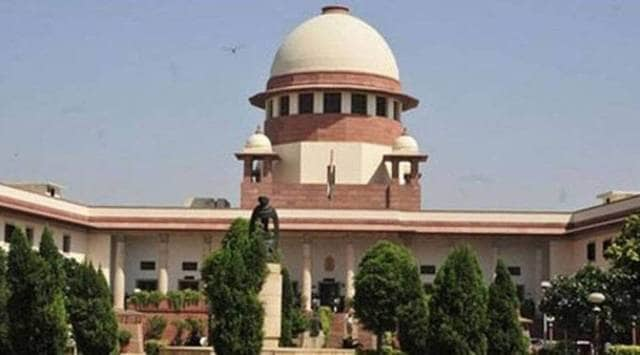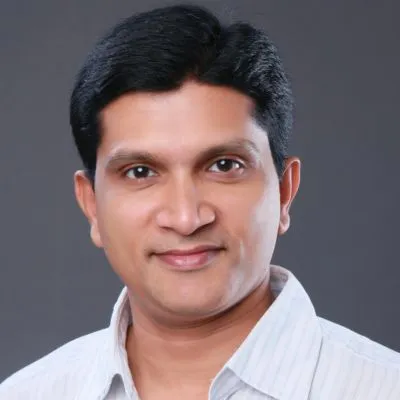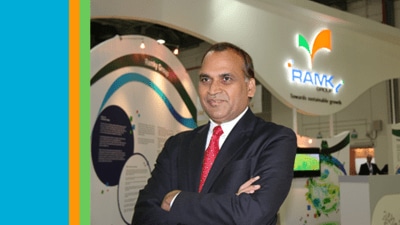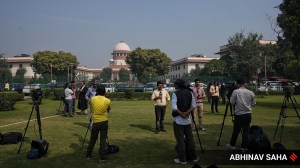- India
- International
Supreme Court issues notice to Centre, Election Commission on plea against freebies
Incidentally, the apex court had already issued notice to the Centre, EC and some states on another plea against direct cash transfer schemes and freebies more than two years ago. The poll watchdog cited limitations of its powers in its response.
 "It is a serious issue and freebies budget goes beyond regular budget. Even though it is not a corrupt practice but it creates a uneven playing field," the bench said in an earlier.
"It is a serious issue and freebies budget goes beyond regular budget. Even though it is not a corrupt practice but it creates a uneven playing field," the bench said in an earlier.Supreme Court on Tuesday issued notice on a plea seeking directions to Election Commission (EC) to frame guidelines to stop political parties from promising or distributing “irrational freebies from public fund”.
A bench headed by Chief Justice of India N V Ramana and also comprising Justices A S Bopanna and Hima Kohli issued notice to the central government and EC on the plea by Advocate Ashwini Kumar Upadhyay after Senior Advocate Vikas Singh, appearing for the petitioner, pointed out that states were already facing huge debt burdens and such freebies will only put stress on people more as the money ultimately has to come from them.
The bench agreed that the issue raised in Upadhyay’s plea is “serious” and referred to the 2013 judgment in the S Subramaniam Balaji vs State of Tamil Nadu and Others case, in which the top court said that “although, the law is obvious that the promises in the election manifesto cannot be construed as ‘corrupt practice’ under Section 123 of Representation of People Act, the reality cannot be ruled out that distribution of freebies of any kind, undoubtedly, influences all people”.
Noting that there is no law governing manifestos, the could had also asked the EC to frame guidelines and stressed the need “for a separate legislation to be passed by the legislature in this regard for governing the political parties in our democratic society”.
The CJI wondered what more could the court do but said “within limited scope, we can ask the ECI to respond” on what happened after its directions in 2013.

Incidentally, the apex court had already issued notice to the Centre, EC and some states on another plea against direct cash transfer schemes and freebies on July 2, 2019. The EC had responded to the notice on January 8, 2020.
In its response, the EC said the court had held that its plenary powers under Article 324 of the Constitution with regard to conduct of elections “can be exercised only in areas left unoccupied by legislation”. It said it “is bound to comply with existing statutory enactments including Appropriation Acts” and that it is, therefore, clear that it “may only regulate the manner of disbursal of cash subsidies to ensure that it does not skew the level playing field in any election”.
The EC said it “has formulated and uniformly enforced… instructions which create constitutionally permissible checks on the schemes involving cash disbursal and other benefits”.
The central government is yet to file its reply to the petition by Pentapati Pulla Rao, who contested as a candidate of Janasena Party from Eluru constituency in Andhra Pradesh in the 2019 Lok Sabha elections. The court, too, is yet to hear the matter after the notices were issued.
Rao’s counsel Hitendra Nath Rath said the matter was last listed on January 10, 2020 when an SC Registrar directed that it be placed before the court for further hearing after four weeks.
Rao’s plea also relied on the Balaji case and urged the court to declare the implementation of the Andhra Pradesh Government’s Pasupa Kumkuma scheme, Telengana’s Ryta Bandhu scheme, the PM Kisan Samman Nidhi Scheme, Odisha’s Krushak Assistance for Livelihood and Income Augmentation scheme, Jharkhand’s Mukhyamantri Krishi Yojana, West Bengal’s farmers’ schemes among others as unconstitutional.
He contended that all these direct cash transfer schemes were initiated ahead of elections without any budgetary allocation for them in 2019-20 and that cash was transferred to voters during the election process. The plea urged the court to ask EC to implement its directions in Balaji case and prepare comprehensive guidelines on freebies, cash transfer schemes among others.
The ECI replied that it had already implemented the directions in Balaji case “by incorporating guidelines governing election manifestos in Part VII to the Model Code of Conduct which has binding force” and also issued “instructions” with regard to implementation of ongoing government schemes when the Code is in operation.
Apr 26: Latest News
- 01
- 02
- 03
- 04
- 05









































